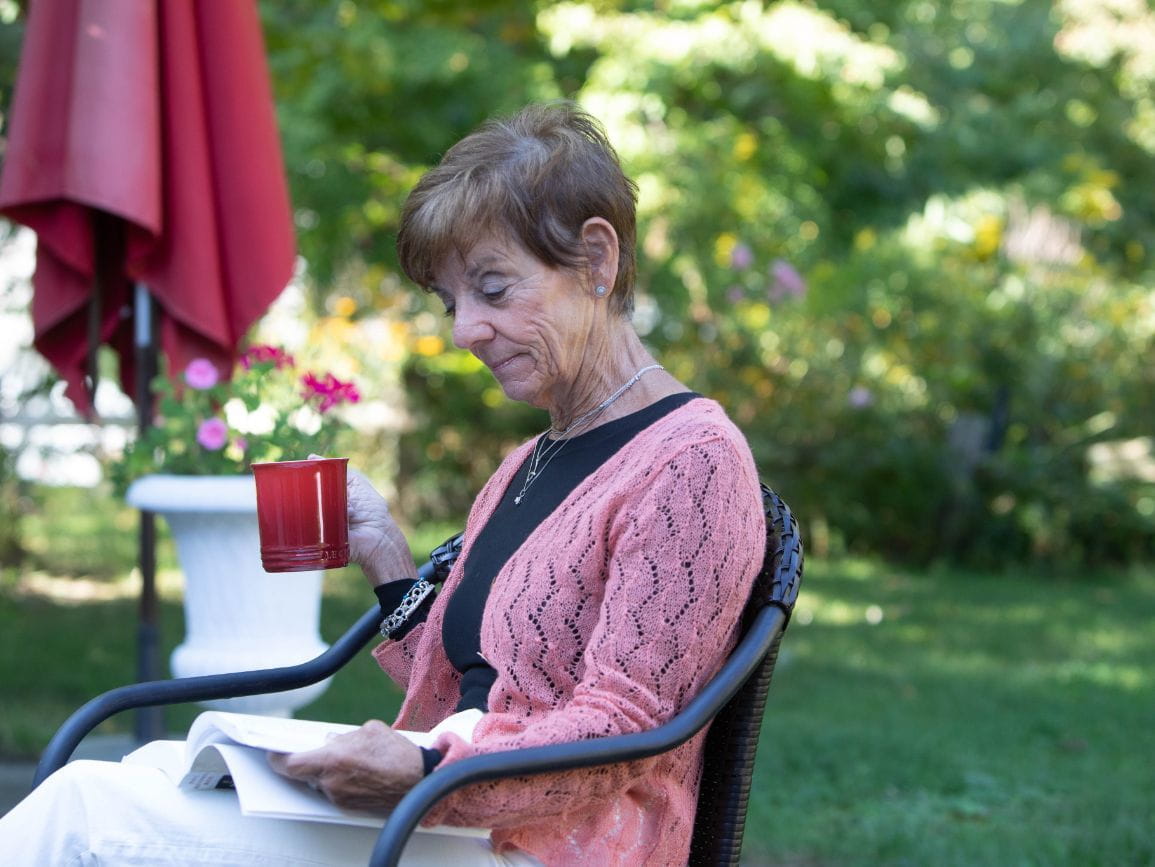If you’re caring for an aging relative, you might wonder how you’ll ever be able to take a break from your caregiving duties and head out on a trip. Rest assured: it is possible!
Better yet, it’s necessary. Camille Koonce, elder care consultant and care coach for Workplace Options, Bright Horizons’ partner, says: “Caregiver guilt is real, but everyone deserves a break. As a caregiver, you must take care of yourself in order to take care of someone else. If you burn out, you can’t care for someone else.”
Read on for more helpful tips and resources from Camille that will set both you and your loved one up for success before you turn on your OOO.
Plan Ahead
Start looking into alternative care arrangements at least a month out — that’s typically enough time to secure in-home care or book adult day programs. A long vacation and/or 24/7 care require more prep time — think two to three months.
Consider cost, too, you’ll likely be paying for care out-of-pocket. The exception? For individuals in hospice, Medicare will cover the cost of a respite stay. Factor these expenses into your vacation budget. Additionally, ask your HR department if your company offers caregiving benefits, such as in-home back-up care (short-term, usually subsidized).
Communicate
It can be challenging to tell a loved one that you’re taking a vacation, but transparency is key. The more communicative you are, the better; the more prepared you are, the easier the transition will be. Talk about where you’re going, with whom, for how long, etc. Reassure your loved one that things will go back to ‘normal’ once you return.
If they have Alzheimer’s or dementia, they may not remember your conversation, so try to be patient or enlist professional help to convey the message as often as needed.
Is your loved one resisting your vacation care plans? Don’t fret. Camille recommends saying something like, “I understand that you’re independent and want to stay at home without someone hovering over you, but we want to make sure you’re safe while we’re gone.” She also suggests using the term “friendly visitor” when describing in-home health aides, so as not to say outright “you need home care.” Need extra help communicating with your loved one? A neutral third party such as an aging life care professional can help. They’re trained to empower seniors while helping them work through resistance, provide case management for families, and even check in on the caregivers you hire, providing an extra layer of security.
Find the Right Care
What level of care does your loved one need? Do they have cognitive issues that require extensive care, or are they fairly independent but in need of meals, light housekeeping, and/or transportation? We’ve pulled together details on in-home care, adult day programs, and short-term stays at care facilities.
In-Home Care
The scoop: If your loved one is somewhat independent, search for in-home caregiving services through a local agency. As you look, think about any additional services that you’ll want and ensure the agency provides them, such as daily check-ins with the caregiver while you’re away.
In addition to agencies, consider students who might be looking for part-time jobs during the summer — many community colleges and universities have websites that allow you to post job listings. Nursing students are an especially great option. Camille recommends calling your local university’s nursing department to find out if they allow job postings on their site.
The cost: The nationwide average for in-home caregivers (not licensed nurses) is $25 per hour, with a 4-hour minimum. 24/7 coverage gets pricey and is often set up in three 8-hour shifts or two 12-hour shifts. If you want to hire a geriatric care manager (think of them as your “project manager”), you’re looking at an additional $125-$250 per hour.
Adult Day Programs
The scoop: These programs give elders the opportunity to spend the day at a local facility with structured activities designed to stimulate brain function. If your loved one enjoys socializing, this is for them! They can then have an in-home caregiver or local neighbor/friend check in on them in the evening, if needed.
The cost: Adult day programs average $75-100 per day (8 hours), and lunch is typically included. If transportation is not provided directly by the program, they likely partner with a local transportation company and can help set up rides to and from their facilities.
Short-Terms Stays at Assisted Living or Skilled Nursing Facilities
The scoop: If you don’t feel comfortable leaving your loved one at home, look at assisted living or skilled nursing facilities for short-term care. Keep in mind that these programs may have a 30-day minimum — perfect if you’re seeking extended vacation coverage. Skilled nursing facilities require a doctor’s orders, so be sure to get that before requesting a respite stay.
The cost: Assisted living can run anywhere from $3,000-$8,000 per month — and higher for luxury facilities. Memory respite care is harder to come by and often involves a waitlist. Skilled nursing facilities typically cost $300-500 per day.
As your loved one’s primary caregiver, thinking about going away on vacation can be tough. You might feel guilty or worried about leaving them in someone else’s care — someone who isn’t as familiar with their needs or personality. But, like Camille mentioned, stepping away to refresh and recharge is key to your wellbeing…and your ability to continue to deliver the best care. Once you decide on a caregiving plan, create a caregiver checklist — take a look at our additional resources. And then, enjoy your time off!
Caregiver Checklists and Helpful Resources
Now that you’ve settled on your vacation care plan, it’s time to create a list to make sure you don’t forget any of the details. Your checklist should encompass: contact information for where you’ll be; emergency contacts; doctors’ information, medication information, dosage, instructions, and reminders; food allergy notes or meal-delivery plans; bathing or toileting instructions, if needed; transportation contacts.
- AARP has two sets of caregiving checklists that we recommend bookmarking:
AARP Prepare to Care
AARP Checklist for Family Caregivers
- Home-delivered meals:
- Websites that act as caregiver databases and administer preliminary background checks:
- The Area Agency on Aging is a one-stop shop for senior resources and every county has one. They know what the current landscape is and which local, in-home caregiver agencies have available staff in your area. Their professionals can help you navigate the whole process from start to finish:
Eldercare locator for Area Agency on Aging.
- If you’re in need of additional moral support, seek out a local caregiver support group. Aging Life Care Association features vetted, experienced caregivers with references. Enter your zip code to see providers near you:
- Alzheimer’s and Dementia Resources:
Alzheimer's Association (800-272-3900 24/7 for support groups)
ALZConnected (Caregiver forum for Alzheimer’s/Dementia)
Written by Ranya Barrett




